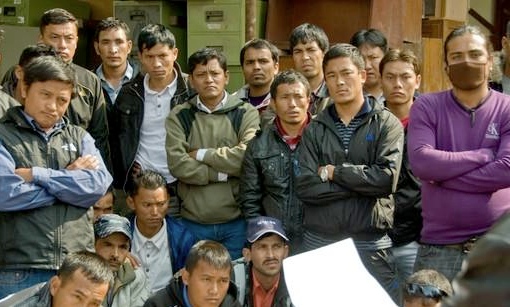Nepal government has stopped issuing labour permits to those migrant workers whose air tickets and visa fees are not borne by their employers.
Following this, the Nepali embassy in Malaysia has implemented its zero-cost migration policy starting July 5th 2015.
Nepalese Department of Foreign Labour Employment only issues permits to migrant workers whose applications are attached with letters by employers ready to pay for their air tickets and visa fees, which has been attested by the embassy in Malaysia.
Nepali Labour Minister Tek Bahadur Gurung had earlier told Nepali Times that the zero-cost policy was to end exploitation of migrant workers.
“Well-established employer companies are always ready to pay for migrant workers’ air tickets and visa fees. Only those companies that do not pay good salaries are not ready to provide these facilities, and we do not want them to hire our migrant workers.” he said.
He also said that this move will stop the recruitment agents from “fleecing” the poor and helpless Nepalese migrant workers.
Deputy Chief of the Malaysian mission Hemlal Bhatarai said at the moment the embassy has not been given any clear guidelines on the changes in their migrant workers policy.
“We have stopped given attestation letters to prospective employers and once the clear directives given, they will look into resuming the process of attestation of labour demand letters.” said Hemlal.
Many Nepali recruitment agents involved in bringing in workers from Nepal has protested the move undertaken by the Nepali government.
According to one of the Nepali embassy staff, whom wished to remain anonymous said that it will be an uphill task to enforce the directives in Malaysia.
“Many labour supply and recruitment agents do not get any revenues or commissions from the employing companies and in this context, they will not pay for the air travel and visa expenditures.” he said.
In order to enforce this decision, the Nepali government has to hold talks with their Malaysian counterpart, or the Nepali workers stands to lose to workers from other countries.
There are some 2 million Nepali workers currently working in various sectors in Malaysia.
The zero-cost migration policy undertaken by Nepali government has also been implemented in six Gulf countries namely Saudi Arabia, Qatar, Bahrain, Oman, United Arab Emirates and Kuwait.











